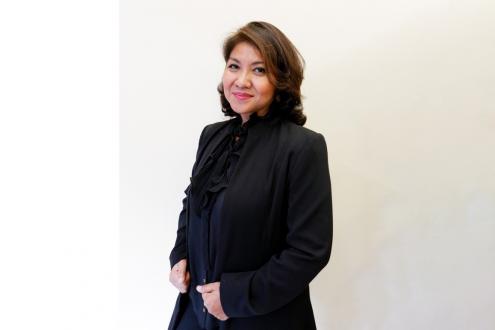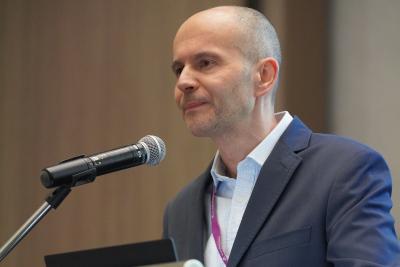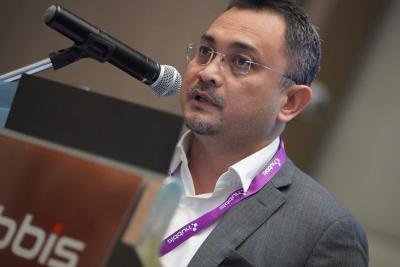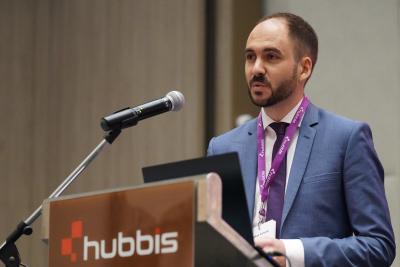Developing the Right Solutions for Islamic Estate & Legacy Planning in Malaysia’s Wealth Market
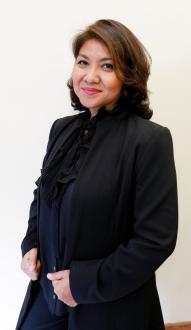
Farah Deba Mohamed Sofian of Messrs Wong Lu Peen & Tunku Alina
May 23, 2022
Farah Deba Mohamed Sofian is a Partner at leading Malaysian law firm Wong Lu Peen & Tunku Alina. She sat as one of our expert speakers on an estate planning panel discussion during our live Hubbis Malaysia Wealth Management Forum on April 13 in Kuala Lumpur. The delegates had the benefit of her insights in to developing and implementing the right strategies to promote smart and robust estate, succession and legacy planning. The discussion centred on how bankers, lawyers and associated professional advisors are helping to promote and then deliver a more dynamic and holistic approach to these vital issues. She focused her comments particularly on Muslim clients, around helping them achieve proper planning for the future and for the benefit of their future generations, but conceded that the various judicial jurisdictions, different interpretation of Islamic practices and laws and the interface with civil laws can significantly muddy the waters. We have summarised some of her many valuable observations in this short report.
Farah opened her commentary by telling delegates that the wealth management environment had been developing apace and that estate and legacy planning had become more central to the offering, especially since the pandemic had disrupted the world so abruptly.
Major changes and major challenges
“So many things have changed so significantly since way back 25 years ago when I began,” she explained. “Back then, it was not much more than Will writing services that we provided for our clients, and there was not much activity for Muslim clients. Fast forward and especially to the past five years, and we have seen a lot more domestic activity and enquiries, as well as a growing number of enquiries from foreign advisors, including foreign lawyers interested in Sharia compliant solutions. Moreover, I now offer advice on Sharia legal issues for Muslims in the UK, for Muslims in Australia and so forth.”
She explained that the demands for advice and solutions had expanded apace with changing regulations, lifestyles and investment practices, with so many more wealthy clients becoming much more global in their footprints.
It is all about interpretations
She told the audience that Malaysia is rather unique as far as Islamic estate planning is concerned, simply because unlike other Muslim countries, it is based on the dual Sharia and Common law system. “We have the Sharia courts, separate from the civil law courts, so people can decide which way they progress matters,” she reported. “What I can say is that we are very advanced in our Islamic financial instruments and sophisticated too. Islamic estate planning instruments however are very much market driven, and our laws actually need to somewhat catch up with actual practices and needs,”
She said that across the world, Muslims are faced with striking the right balance between the rights of their legal heirs, and the rights of those to whom they wish to bequest their assets.
She said there is a lot of confusion in the market, for instance issues on the rule of bequest.
Seeking balance in the eyes of law and faith
“And you also have the issues around ‘inter vivos’ products, for example the creation of trust that takes effect after death,” she remarked. “You also have the issue of formation of a foundation anywhere in the world, for that matter. And what are the rights of the beneficiaries? And how do you balance that understanding between the beneficiaries and that of the settlor or the testator for that matter, or the founder? These and other key issues are constantly challenging the community and us as advisors.”
She said as clients and advisors face up to these issues around the Sharia compliant distribution of wealth, there remains a lot of misconception and misunderstanding out in the market.
“I believe the misconception is because all the advisors speak different languages,” she said. “Some speak Malay language, some English, some Arabic, some processes are through civil and some through Sharia courts, and then you have the various state and the federal laws in Malaysia, which are often different.”
Where the modern world and cultures can collide
She added that in her experience, civil court judges are often not equipped to actually look into the modern trust issues such as discretionary trusts, and also struggle with structures from the wealth and estate planning sides. “For example,” she explained, “there might be issues around whether a wife can claim residuary harta sepencarian (jointly acquired asset) if an agreement have already been signed “And there might be issues around whether the trust created during the lifetime is actually a way to prevent the legal heirs from benefiting under Sharia laws.”
Striving to resolve the issues
She said these are perennial questions challenging advisors and lawyers.
“From my perspective,” she reported, “for robust Shariah estate planning and broader wealth management planning, with regards to distribution, the use of the trust and foundation as a mechanism is the right way forward for the usually highly complex affairs of HNW and UHNW clients.”
This, she added, can help resolve some issues around legal heirs and the actual expectations of the clients, which can often be very mismatched.
Similar issues across the wealth spectrum
Farah also addressed the many awkward conversations that transpire so often with clients on these vital but sensitive issues. “The issues are always there, whether we are dealing with smaller assets, or clients with huge houses in Bukit Tunku and billions of dollars of wealth and numerous children and grandchildren. One document, one solution does not encompass everything, so my appeal is for the bankers and advisors out there to be truthful with clients and let them know from the outset that there is no one single solution for Muslims that is suitable across all assets and jurisdictions. The difficulty is that the views of civil and Syariah Court judges, Fatwas issued by the various muftis and that of the Islamic scholars out there must be taken into consideration.”
Looking at the big picture
Nevertheless, Farah explained that these issues cannot be ignored and brushed under the carpet. “You have to know that, unlike non-Muslim Wills, Islamic estate planning requires a whole spectrum of advice. This is going to cost money,” she said. “There are many issues and uncertainties in interpreting the various legal structures for Islamic clients which is not the same with non-Muslim clients who can be sure that their structures are not open to challenge. For Muslim clients however, they are always wondering who and how their personal wishes, structures and legacies could be challenged.”
Having listed all those caveats, Farah did however say that progress is being made. “We are actually on the right path as we have very good scholars, who are new thinkers have new ideas to accept modern concepts of trust,” she said.
Three precepts to remember
Her final comment focused on the practicalities of the structures that might be put in place.
“Remember,” she advised, “that when it comes to succession planning there are three things that you need to take note of – issue of ownership, access, and control – advisors must keep this in mind throughout. So, when you sell products and solutions, when you talk about succession planning, these are the three things that you must always remember, which is applicable to both Muslim and non-Muslim clients; Shariah and civil law. If you get this right, you can plan for a more robust distribution to the proper beneficiaries.”

More from Farah Deba Mohamed Sofian, Messrs Wong Lu Peen & Tunku Alina
Latest Articles


